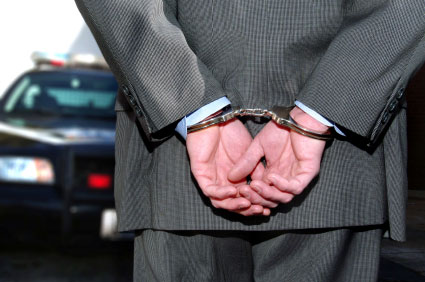Post Arrest Charges in Utah
I recently had a conversation with a potential client and had to explain something to him that I think most people don't understand. When you get arrested or receive a traffic citation the cop is essentially giving you notice of the charges that will likely be filed against you in court. However, it is NOT the officer who makes that decision. When the officer gets back to the station, they will send all of their reports/citations to the local prosecutor's office. The prosecutor then reviews the case to see what charges can and should be filed based on the evidence that was obtained. Thus, you may have been cited for speeding, but the prosecutor could charge you with something more severe.
Here's a perfect example. Say you're driving down the road and you get pulled over for speeding, going 85 in a 50. Yep, you were going quite fast. Once pulled over, the cop approaches and smells alcohol. You, of course, are asked to get out of the vehicle and perform field sobriety tests. You do quite well and "pass" but the officer has you blow in the intoxilyzer 8000 anyway (which is portable by the way, and many highway patrolmen have them in the trunk of their patrol cars). Fortunately for you, you blow a .075, which is under the limit. The cop only cites you for speeding and tells you to "drive slower."
You are then shocked when you call the court to pay your citation and the clerk says, "I'm sorry sir, but this requires a mandatory court appearance." You can't figure out why until later you learn that the prosecutor has actually charged you with three crimes: (1) Reckless Driving -- speeding 85 in a 50 could be considered driving in wanton disregard for the safety of others, see U.C.A. 41-6a-528; (2) Alcohol Restricted Driver's License Violation -- although the cop didn't notice it at the time, your driver's license was alcohol restricted, thus any amount of alcohol violates that restriction, see U.C.A. 41-6a-530; (3) DUI -- you thought you got off lucky by blowing below the legal limit, but the prosecutor knows the statute says you are DUI if above a .08 OR even below if you are "incapable of safely operating a motor vehicle." See U.C.A. 41-6a-502.
I guess the long and the short of this, and what frustrates people the most is that what the officer cites you for may not be what you actually face in court. I suppose we want it that way though. Officers are not legally trained and do not have to argue their decisions in court. Prosecutors, on the other hand, are legally trained, and it is their job to defend such decisions in court. They, in theory, have the ability to weed through the evidence and find what charges are appropriate and what are not. However, it is still extremely frustrating when an officer makes a decision not to charge something and a prosecutor charges you anyway.
Defense Attorney Consultation SLC
If you have been arrested and charged with DUI or alcohol related offenses, contact Branson West Law Offices 24-hours a day to schedule a free defense consultation.
